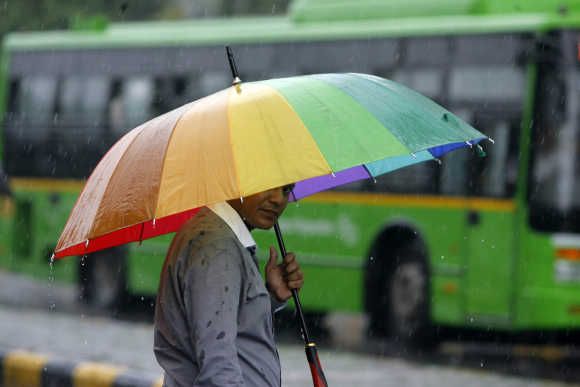
Rating agency Moody's on Wednesday said monsoon and global financial volatility will pose additional risks to India's growth this year, but the gross domestic product is likely to average around 7.5 per cent over the next 18-24 months because of improvement in business environment induced by reforms.
The current subdued growth conditions in India reflect both global and domestic factors, which include weak domestic credit conditions, tepid local demand and uncertain global growth, Moody's Investors Service said in a report.
"Since India's structural reform efforts will revive domestic investment and competitiveness over the medium rather than near term, the above factors will limit the pace of economic recovery in India over the next two quarters, while the monsoon and the potential for global financial volatility pose additional risks to growth this year," it said.
The US Federal Reserve is widely expected to increase interest rates by June or September, a move that would trigger a flight of capital from emerging markets, including India, and result in financial volatility.
For the second successive year, monsoon is likely to be below normal in the current year at 93%, as parts of north-west and central India may be the most affected, according to an official forecast.
"Looking ahead at the next 18-24 months, India's growth is likely to average around 7.5 per cent, which is higher than forecast in similarly rated peers," Moody's said.
US-based Moody's has a positive outlook on India's 'Baa3' rating.
It, however, said the extent to which India's growth will outperform and for how long growth will remain high will depend on how infrastructure, regulatory and bureaucratic
reforms are implemented, given that these measures are still at early stages.
"Even with robust growth, India's fiscal metrics are likely to remain weaker than those of similarly rated peers, and the social, political and economic challenges associated with low average incomes will persist over the medium term," it said.
But the rating agency lists favourable demographics, a large economy, economic diversity as well as high savings and investment rates as India's structural positives.
The recent reforms efforts include inflation targeting framework, regulatory simplification, increase in limits for foreign direct investment in rail infrastructure, defence and insurance sectors, among others.
Image: A man holds his umbrella as he crosses a road during rains in New Delhi. A file photo. Photograph: Mukesh Gupta/Reuters










 © 2025
© 2025